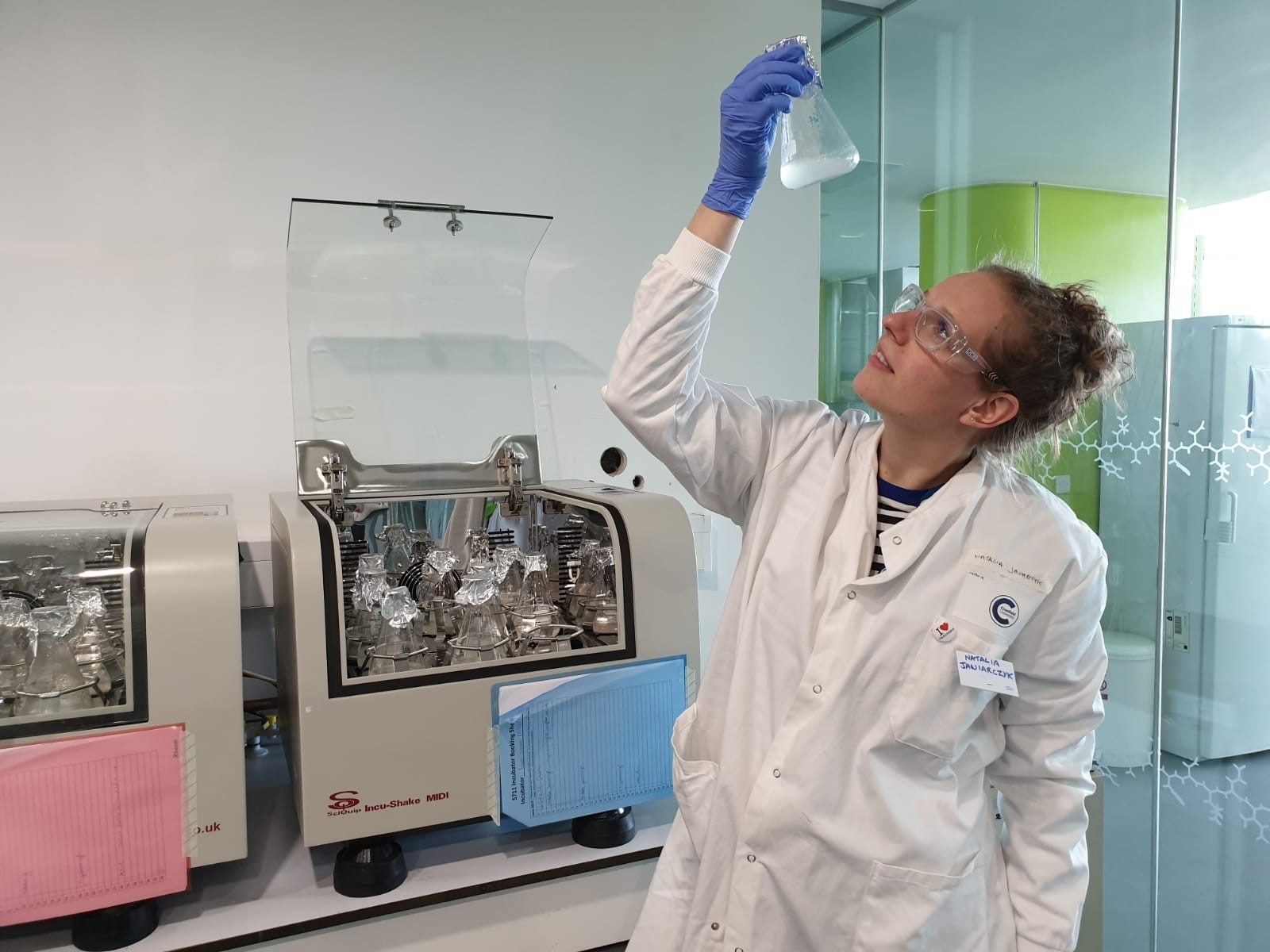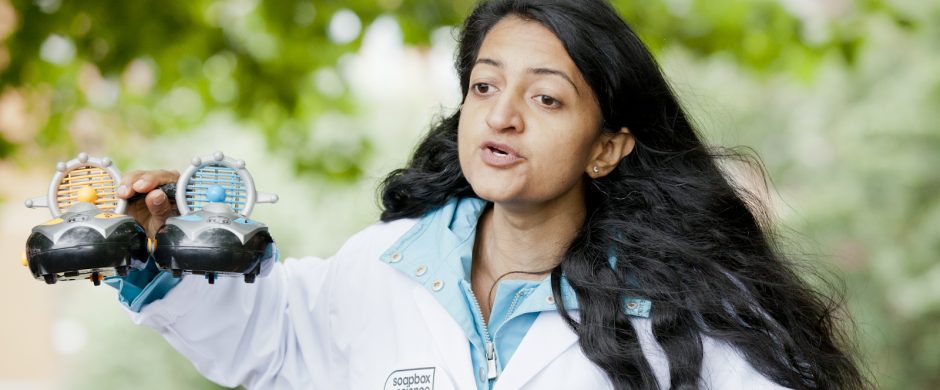 Natalia obtained an MSc in Biotechnology from Wroclaw University of Technology in Poland, majoring in environmental biotechnology. She did her second Master’s in Industrial and Agrifood Biotechnology at Almeria University in Spain, where she majored in industrial biotechnology and bioprocessing, focusing on marine biotechnology.
Natalia obtained an MSc in Biotechnology from Wroclaw University of Technology in Poland, majoring in environmental biotechnology. She did her second Master’s in Industrial and Agrifood Biotechnology at Almeria University in Spain, where she majored in industrial biotechnology and bioprocessing, focusing on marine biotechnology.
Natalia’s EngD project at Cranfield University is part of the STREAM IDC (the Industrial Doctorate Centre for the water industry). She aims to establish how FOG (fats, oils and greases) deposits form in the sewer network, and how they can be rehabilitated and inhibited effectively using bio-additives. She is working on understanding the factors which contribute to deposition to enable more accurate targeting of bio-additive strategies. Her work is funded by the Engineering and Physical Sciences Research Council and Severn Trent Water.
You can catch Natalia on her soapbox as part of Soapbox Science Milton Keynes on 29th June where she will be talking about “Fatberg science”.
SS: Natalia, how did you get to your current position?
NJ: I strongly believe that the key to success is to take every opportunity life gives you. Before I got to Cranfield I changed my research topic several times. Throughout my studies in Poland, I was a trainee in the Laboratory of Medical Microbiology at the Polish Academy of Sciences, where I worked on the biochemical analysis of bacterial lipid markers and wrote my master’s thesis. After graduating I went to Spain where I undertook vocational and educational training (thanks to a Leonardo da Vinci partnership) at the University of Almeria. Here I learnt the basics of microalgal biotechnology and was encouraged to follow this research pathway. I stayed for another two years working in the marine biotechnology group where I gained first-hand experience in microalgal biofuel production.
When I started my PhD at Cranfield, I was in the Energy theme, and my work was focused on the reuse of microalgal biomass. This was a natural continuation of my work in Spain. However, a change of supervisor meant I was able to change my research topic. I moved from Energy to Agrifood and researched insects grown on waste based protein production. However, my topic changed again. I joined the Water theme where I am currently pursuing my EngD as one of the STREAMers working on FOG bioremediation.
I underwent two changes of main academic supervisor, and completely changed my research topic four times, and yet I am completely satisfied with the way things have worked out for me. Sometimes you have to be like water by moving and adapting to fit changing situations.
SS: What, or who, inspired you to get a career in science?
NJ: The idea to get involved was all mine, but the people I have been privileged to work with have kept me going. My clear vision when I was doing my first master’s in Poland, was that the only place I would ever want to be is at a university pursuing my PhD and career in academia. I was lured by the vision of independency I believed it would come with.
I have been very fortunate to have the support of my family, academic supervisors, co-workers and fellow students. They have inspired me, encouraged me, and never doubted me, always pushing me to do more. There has always been at least one person who’s had something nice to say.
SS: What is the most fascinating aspect of your research/work?
NJ: Working with the ‘beasts from beneath’ (FOGs from the sewer). As part of my research I have had the opportunity to analyse pieces of the famous Whitechapel fatberg (which is now displayed at the Museum of London) and the Whitehall fatberg, which was the subject of the Channel 4 documentary ‘Fatberg autopsy: secrets of the sewers’.
Currently the big unknown is around the reactions leading to fatberg formation, and this is where my research will have impact for the public, the environment and the water companies. The processes are much more complex than the simple solidification of fat in sewers caused by temperature drop and hydraulic pressure. Tackling the science behind deposit formation will enable much more effective and targeted sewer FOG management.
SS: What attracted you to Soapbox Science in the first place?
NJ: The opportunity to engage and interact with the public and the buzz it brings, as well as getting insights into my research from the outside world. It is easy to develop a closed-mind when working on a project for so long, and sometimes-random comments from unrelated people bring the breakthrough moments. In addition, I also love the idea of promoting women in science, and creating a ‘safe space’ for them to step forward and embrace their inner scientist.
SS: Sum up in one word your expectations for the day
NJ: Engagement
SS: If you could change one thing about the scientific culture right now, what would it be?
NJ: We need to work more collaboratively, and be more supportive of each other. We should be less competitive and success-driven and reflect more. Let us become more open in conversations about our research, share negative results, and let the scientific knowledge flow freely. Collaborations always bring more to the table than individual achievements.
SS: What would be your top recommendation to a woman studying for a PhD and considering pursuing a career in academia?
NJ: Surround yourself with supportive, likeminded people. It’s possible to have successful work and family lives, but accept you will not be 100% at everything. Most importantly, give everything you do your best shot, but remember that good enough is good enough! Never shy away from opportunities.
